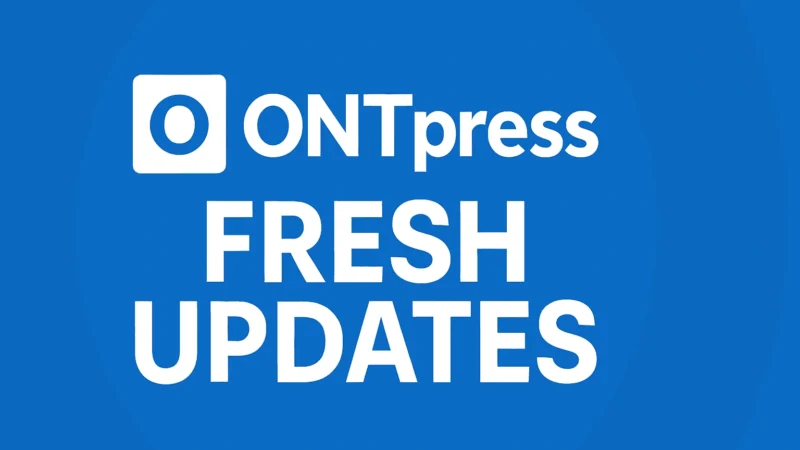Tried and Tested Tips on How to Increase Website Traffic

In today’s digital world, having a solid online presence is non-negotiable for businesses and blogs aiming to thrive. One of the crucial elements ensuring your online success is driving organic traffic to your website. Organic traffic refers to those visitors who land on your site via unpaid search results. It’s a cost-effective and sustainable way to grow your audience and elevate your brand’s visibility. Consequently, businesses are constantly seeking strategies to increase website traffic at www.sparktraffic.com/increase-website-traffic and maximize their outreach. By focusing on organic methods, you build a loyal audience and foster long-term growth without incurring hefty advertising costs. Let’s delve into some tried and tested tips to help increase website traffic while keeping things natural and engaging. Whether you are new to the digital landscape or looking to enhance your current strategies, these insights will provide a roadmap for success, ensuring your online presence is robust and effective.
Understand the Power of SEO
Search Engine Optimization (SEO) sits at the core of increasing organic traffic. It’s the art and science of optimizing your website to rank higher in search engine results pages (SERPs). Effective SEO can significantly boost your site’s visibility, making it easier for users to find you.
Keyword Research: The Starting Point
One of the most basic yet vital components of SEO is keyword research. Keywords are the terms and phrases that potential visitors type into search engines. Widely used tools like Google Keyword Planner, SEMrush, and Ahrefs can help you identify high-volume keywords relevant to your industry.
Once you have these keywords, incorporate them seamlessly into your content, titles, and meta descriptions. Avoid keyword stuffing, as it can adversely affect readability and result in search engine penalties.
Create High-Quality Content
There is no substitute for quality content. A well-crafted, engaging, informative article will naturally attract and retain visitors. It is in your best interest to address the needs and questions of your audience, offering valuable solutions and insights.
For example, if you manage a travel blog, detailed guides on destinations, complete with stunning visuals and practical tips, will likely captivate your audience. Updating your blog regularly with fresh and relevant content also signals to search engines that your site is active.
Leverage Social Media Channels
Social media is an indispensable tool for driving organic traffic. Platforms like Facebook, Twitter, Instagram, and LinkedIn can help you reach a broader audience. Sharing your content and engaging with followers by responding to comments and messages helps build a community around your brand.
Consistency is Key
Maintaining consistency is crucial to staying visible in the ever-bustling world of social media. Create a posting schedule and adhere to it. Tools like Buffer and Hootsuite can assist in managing and automating your posts, ensuring your content is delivered at optimal times.
Create Shareable Content
Easily shareable content can amplify your reach exponentially. Consider creating infographics, videos, and interactive posts that your audience will want to share with their network. Adding social share buttons directly on your blog posts makes this process even more straightforward.
Optimize for Mobile Users
As users increasingly access websites via their mobile devices, optimizing your site for mobile is essential. Google’s mobile-first indexing prioritizes the mobile version of your site. Ensure your site is responsive and loads swiftly on mobile devices.
Enhance User Experience
A positive user experience can keep visitors on your site longer and encourage them to explore more pages. This involves easy navigation, fast loading times, and a clean, visually appealing layout. Use tools like Google’s Mobile-Friendly Test to identify any areas of improvement.
Build Backlinks for Increased Authority
Backlinks are links from other reputable websites to your site. They are a potent way to boost your site’s authority and rankings. When high-authority sites link back to your content, it signals search engines that your site is trustworthy and valuable.
Engage in Guest Blogging
An effective method to gain high-quality backlinks is through guest blogging. By writing posts for other reputable blogs in your niche, you not only expose your content to a new audience but also create backlink opportunities. Ensure that your guest posts are of high quality and provide real value to the host site’s readers.
Conduct Link Outreach
Another strategy is link outreach, where you reach out to website owners in your industry and request a link back to your content. Be sure to emphasize the relevance and value of your content to their audience when making your pitch.
Utilize Analytics to Track Success
Monitoring your traffic data is crucial for understanding and improving your strategies. Tools like Google Analytics can provide detailed insights into how visitors find and interact with your site.
Know Your Traffic Sources
Analyzing your traffic sources helps identify which channels are most effective. Whether it’s organic search traffic, social media, or referral traffic, knowing where your visitors come from allows you to allocate your resources more judiciously.
Understand User Behavior
Metrics such as average session duration, pages per session, and bounce rates offer insights into user behavior. This information helps you understand what is working and what needs to be adjusted.
Conclusion
Increasing website traffic is an ongoing effort that blends several strategies, including SEO, high-quality content creation, social media engagement, mobile optimization, backlink building, and diligent use of analytics. Consistently applying these techniques will enhance your online visibility and attract a steady stream of visitors.
Remember, there’s no one-size-fits-all solution. Continuously test different strategies, measure their effectiveness, and refine your approach according to your audience’s evolving needs. As an SEO specialist, your mission is to create a valuable, engaging, and easy-to-navigate online experience that naturally attracts and retains visitors, helping you achieve long-term success.





